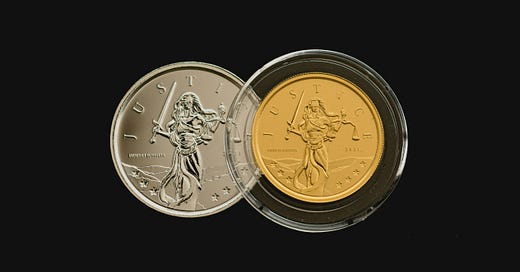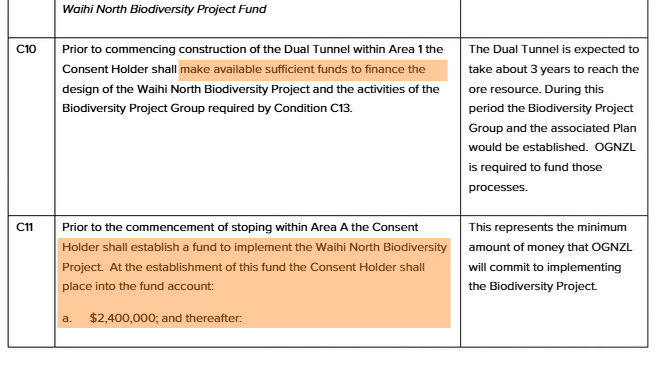Buying Gold? Reflections on the Ethics of Mining
A case study of a small New Zealand goldmining town
Many of us are reading-up about the potential vulnerabilities in our global economy. Gold and silver are always the go-to commodities in unstable times. But until now, I hadn’t carefully considered where those metals come from, and what potential negative impact mining has on individuals. I’ve written about the appalling conditions in Africa after reading Cobalt Red by Kara. But this issue is closer to home. Is our interest in gold and silver also ‘feeding the machine’? Is Globocap (once again) profiteering from our fears? Here’s an example of our ethical dilemma…
It’s summer holiday time in New Zealand. With costs of flights, accommodation and food so much higher than BC (before covid), there are significantly less tourists around. NZ is heavily reliant upon tourist sectors, many retailers are being hit hard. Despite our warm sunshine and blue skies, the atmosphere in small a Kiwi town is decidedly downcast. Debts are high, the economy is front of mind.
We have recently been away camping. One area we stayed was the Bay of Plenty (BoP)(circled below for readers not in NZ). In the past, I’ve seen signs from protests and activists fighting the expansion of the goldmine. Forgive me, sometimes there’s just too many battles to fight in this global war. There’s a limit to the time and emotional energy each of us can afford. But staying in BoP’s Waihi for a few days (pop. ~6000) gave me new insights and curiosity.
Waihi has a gold mine - ‘Martha’ - situated right in the centre town. Its tourism is founded on the 1900’s historic goldmining industry: travel the original train track (a rarity in NZ) and visit the museum of artefacts. Martha is a massive scar on the otherwise beautiful landscape, but eerily invisible until you’re right at the periphery:
Amongst other locals, I spoke with Margaret, owner of an inspiring local second-hand bookstore, who described the frightening ‘earthquake’ a few days previously. Homes shook, glass cracked and some people ducked for cover, during what turned out to be an ‘unplanned’ blast, deep in the underground mine. I hadn’t realised until then, how the opencast site nearby was only a fraction of the mining operation. Regular blasts (planned and unplanned) recorded by monitoring stations cause vibration, noise and damage. It reminds me of my childhood when we lived in the Kent coalfields.
Following the Money
The Waihi gold mine is owned by Oceana Gold Holdings (New Zealand) Ltd and is wholly-owned by Oceana Gold Pty Ltd, Australia. OceanaGold is a Canadian-based,
“…mid-tier gold and copper producer committed to safely and responsibly maximizing the generation of Free Cash Flow from our operations and delivering strong returns for our shareholders. We have a portfolio of four operating mines: Haile Gold Mine in the US; Didipio Mine in the Philippines; and the Macraes and Waihi operations in New Zealand.”
As the campaign against the expansion of the mine, Ours Not Mines, explains:
“OceanaGold already owns the Martha Mine open pit in Waihi and its associated tunnelling, as well as a nearby processing plant and toxic waste dams. But there’s not much gold left in the Martha pit, and Oceana has been actively exploring other areas in the Hauraki/Coromandel. They are currently pinning their hopes on a DOC-administered native rainforest, which is richly biodiverse. It’s one of the few remaining habitats for Archey’s frog, pepeketua, critically endangered and found in no other country on Earth.”
The Waihi North Project includes kms of enormous underground tunnels with required ventilation shafts in the forest above. The true extent of this proposal can only be understood by reading this summary text and/or watching this 5 min video:
OceanaGold claim that by going deep underground the forest and its precious ecosystem, including its rare species, remain unaffected and even ‘protected’. How? because apparently OceanaGold are ‘investing’ into increased poison ‘pest’ control in the forest above its operations. Access to the site is conveniently being granted by the local council. I smell a rat there.
The Myth of Clean, Green, 100% Pure NZ
The mention of Archey’s frog reminds me of another academic-in-exile (there are many of us) who attempted to raise awareness about the harms aerial poisoning with compound 1080 has on this unusual species. NZ Governments’ seventy-year obsession with poisoning its own soil, water and citizens is a war on nature. We know more now about the acquisition of vast swathes of public land by corporates like OceanaGold. As explained by my Substack colleague
, these Agenda 2030 strategies are long-running and multi-pronged. They seek to restrict freedoms, divide communities, destroy our heritage and exploit resources.Ours Not Mines explain how internationally, OceanaGold have been guilty of numerous breaches of Human Rights laws and fined for neglect of Health and Safety. There have also been tragic deaths at Waihi, too. But expensive lawyers and fancy PR companies spin the narrative of ‘environmental sustainability’ regardless of the evidence. And the NZ Dept of Conservation Corruption are ingratiated with $millions in ‘biodiversity’ funding:

Last year a Judicial Review failed to halt the mining expansion. In Dec ‘24, OceanaGold released a media statement about plans to take advantage of the changes in New Zealand’s law, instigated by our coalition Government that ‘fast-track’ consent for ‘investment’ infrastructure. Gerard Bond, President/CEO of OceanaGold, said
"We are very pleased by the enactment of this landmark legislation that derisks the permitting timeline, providing a better climate for investment... As validated by our recent pre-feasibility study results, the Wharekirauponga underground mine has the potential to deliver decades of significant benefits for shareholders, the workforce, local communities and the New Zealand economy. Consistent with our 35 years of successful operation in New Zealand, the development will be progressed safely and responsibly."
The Future is Gold
The three main shareholders of OceanaGold are VanEck ETF, Investco and Sprott Gold. I found this interview (40mins) with multi-billionaire founder of Sprott Gold, very insightful for a view of corporate gambling and greed that seems so antihuman:
What will happen to the quaint little town of Waihi, with its historic museum, art shops and secondhand bookstore? Will there be any financial benefit to the residents from the tonnes of gold extracted by OceanaGold from those underground tunnels below? There’s been little evidence of that so far. But meanwhile, people like Eric Sprott will keep pushing ethical boundaries to prioritise return on investment for his shareholders. That’s what Public Private Philanthropathic Partnerships are all about. Do ethical mining companies even exist?
Please Buy me a Coffee so I can pay it forward here.












I don't hold out for Waihi's survival in the sense you see today. If the price stays high, which seems a certainty given (for example) the $ printing and the central bank gold buying, OceanaGold will have no problem raising funds to expand.
Ethical mining? Among the investors, whatever they can get away with as long as there's a profit. Mining is always unethical from one perspective (environment), even when it's not open-cast; chemicals galore and the surface damage. But the problem is modern society is dependent on the products of mining. The quandary will always be there. There's a new unethical element. The products of mining (esp. silver) are critical for the brave new automated control-grid world being planned.
But then the gold is necessary if we're ever going to get rid of the fake fraud fiat currency we've been subjected to for the last century.
"an inspiring local second-hand bookstore," -- now I'm very jealous.
Hmmm...perhaps we shld see where DOC is supposedly saving the native wildlife and isn't, and dropping ridiculous amounts of 1080 into our waters, streams, and all over the land and see if it coincides with where we have all sorts of resources? NZ is very wealthy in terms of what we have, oil,gas, minerals, gold, lots of resources. Will the land be so toxic we will be moved off the land and into 15 minute cities?